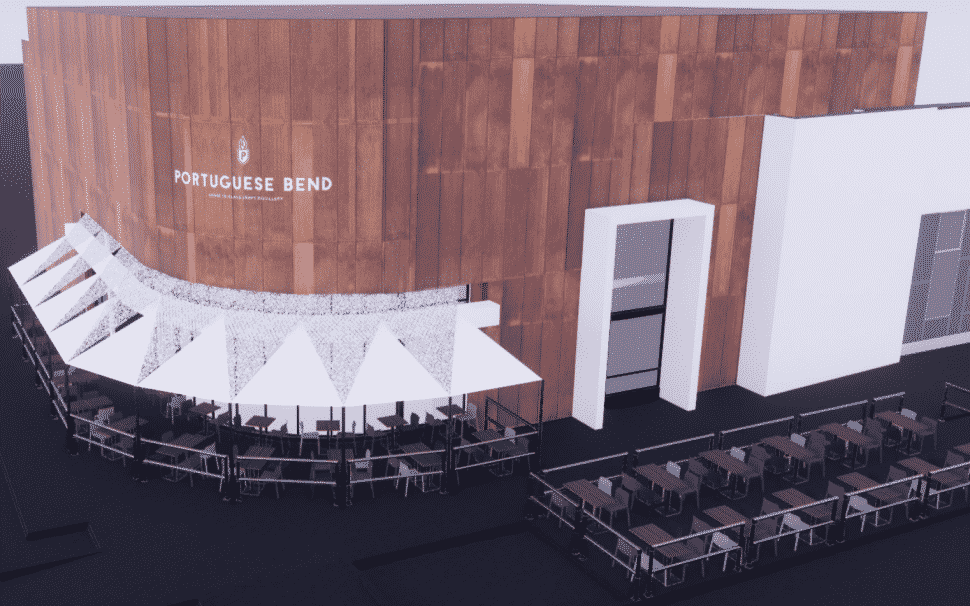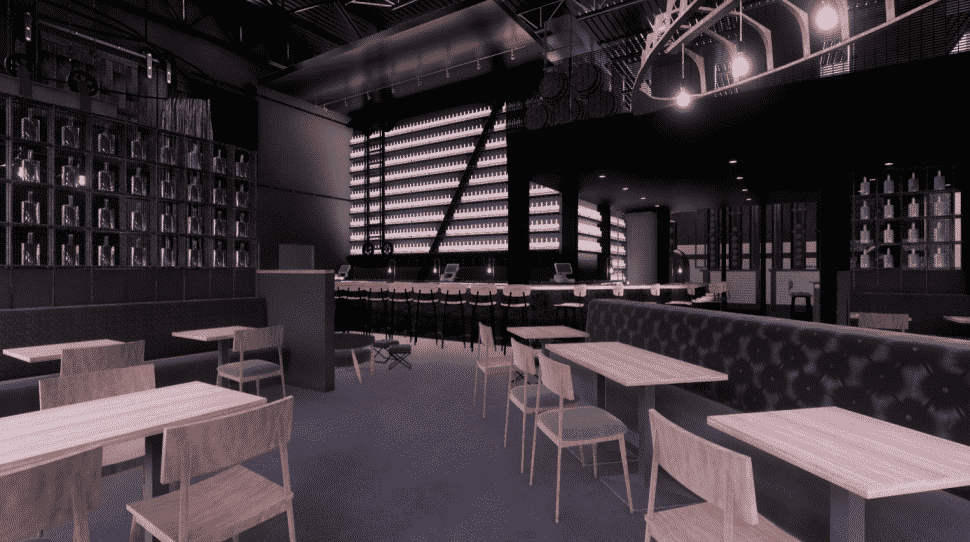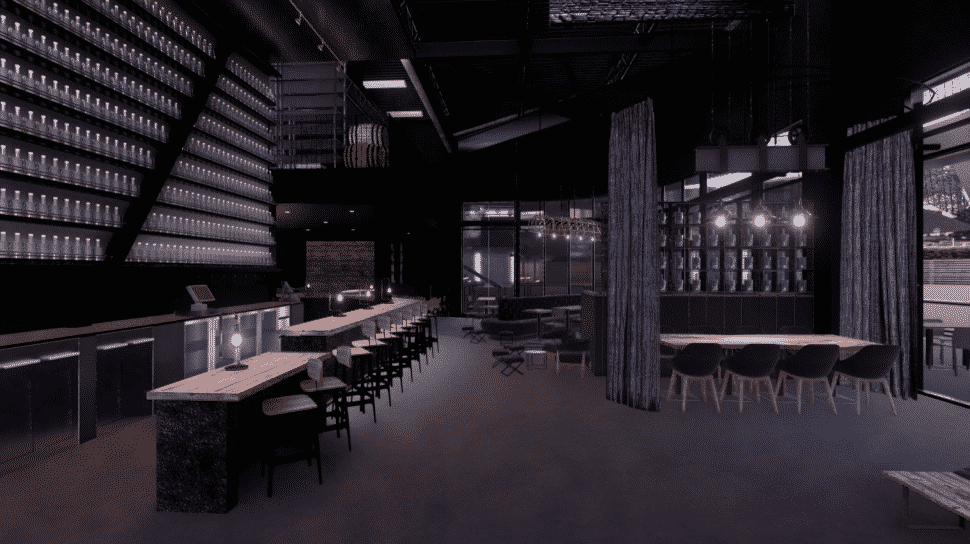Holding up a clear, unmarked bottle, master distiller Simon Haxton swirls around the carafe’s liquid fillings—a bright, bordering-magenta spirit that looks, frankly put, very pretty.
“The spirit of California, in my mind, is the way that our culture eases others into, well, the culture of others,” Haxton said, beginning to pour an ounce or two of the liquid into a nondescript cup. “We make it easy to learn about new things—that’s why I call this California Gin. It’s my way of getting non-gin drinkers into drinking gin.”
Bright and fruity thanks to the addition of hibiscus, Haxton’s creation is dangerously sip-able—even when served neat, bucking the long-held tradition that made gin stand out from other spirits: Gin is never meant to drink neat. For those who have long loved the English staple, Haxton will have a classic English gin along with a stellar variety of rums—a high ABV naval rum as well as a more drinkable Caribbean version—whiskies, and vodka.

This is the spirit behind Portuguese Bend, the endeavor announced last year from the owners of Lola’s and The Social List, Luis and Brenda Navarro—and their third dive into gastronomy, offering the city its first Made In Long Beach spirits, has officially broken ground.
“We don’t have an exact opening date but we’re hoping to open somewhere around the first quarter of 2019,” Luis said. “But we’re moving forward: We have Studio One Eleven honing in a design and our 600-gallon still is currently being made by hand in Atlanta. Pretty stoked we straight up have our still coming in from the South.”
That Retail Design Collaborative design eschews commonalities currently found in breweries and distilleries—there is not an ounce of reclaimed wood, parallel slats, or Edison bulbs to be found—and instead centers in on creating a dark, grand space. A 22-foot high wall will be lined with bottles while wood light fixtures pay homage to the boats and smugglers who turned the bay near San Pedro into the epicenter of SoCal’s booze transiting during Prohibition.

Add onto this giant glass panels that allow patrons the ability to watch the distilling process in action and you have what will arguably be the city’s most unique culinary and drinking experience.
“In terms of the feel behind our cocktails and food, Brenda and I have decided to concentrate on The Roarin’ 20s of American living,” Luis said. “I obviously wasn’t physically there but from what I read, the people seemed to be in pure party mode. It was a badass time of living and while we’re not trying to recreate it directly, we want to touch on it.”
The 1920s was arguably one of America’s most vibrant and, on its flip side, depressing times: Backed by a booming economy and the start of Prohibition in the early start of the decade, the nation’s urban centers—Los Angeles definitively included, with Portuguese Bend in the bay acting as the epicenter of the illegal booze trade in the region—became the epicenter of debauchery and non-stop partying. By the end of the decade, the country would see the worst economic fallout of its history and usher in the Great Depression and, by uplifting the ban on alcohol, also usher in an era of American distilling.
These rich histories will all play part in how Luis, Brenda, and Simon work together to create a cohesive offering of distinctly classic cocktails and grub offerings while also maintaining a feel that is thoroughly and distinctly contemporary—and that includes offerings special memberships that, much like the private parties of the roarin’ times, give folks a sense of exclusivity.

Moonlighting Members, distinguished by the coins that act as proof of their belonging, will be part of a group that sees and partakes in events that won’t be offered to anyone in the public.
“The first 100 members will have access to special barrel releases, bottling celebrations, spirit-pairing parties—the works,” Luis said.
One of the most special perks? A whiskey-and-Iberico ham party. Jamón Ibérico is one of Spain’s most prized forms of food: black Iberico pork is dry-aged—sometimes up to two years—and, much like Prosciutto de Parma of Italy, often served thinly sliced with little accoutrements. In the case of Portuguese Bend, a jamon will be aged simultaneously with a specific whiskey and the pairing will be solely for Moonlighters.
“We plan on tagging the jamons with the barrel, aging them along the same exact timeline so when the whiskey is done aging, we have the jamon as well,” Luis said. “These experiences are the type we are trying to build at Portuguese Bend.”
What can we say? Sign us up.
Portuguese Bend is located at 300 N. Promenade in Downtown Long Beach.
Brian Addison is a columnist and editor for the Long Beach Post. Reach him at [email protected] or on social media at Facebook, Twitter, Instagram, and LinkedIn.

